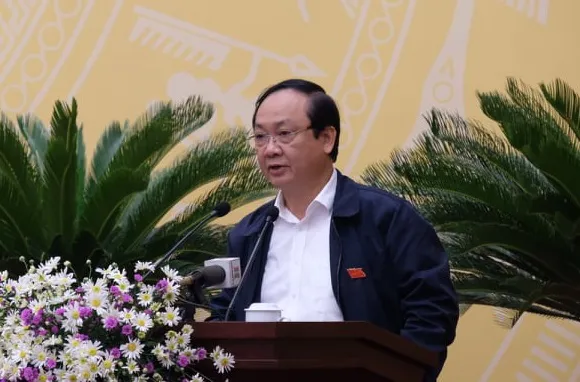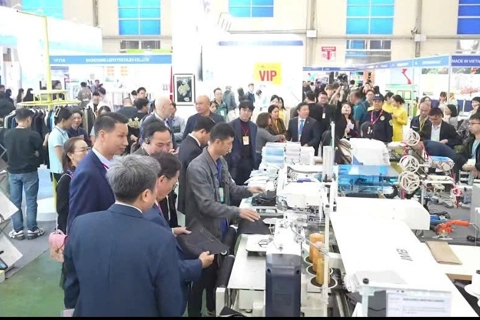Hanoi checks water quality to ensure safe supply
The Hanoi government has required that the source of underground water must be checked to ensure safe water supply.
Hanoi has been checking water quality to ensure the capacity of water suppliers, said Vice Chairman of Hanoi People's Committee Nguyen The Hung at a meeting in Hanoi on December 4.
Hung affirmed that the municipal government has identified tap water supply as one of the city’s prime missions; the clean water indicator is always a parameter to evaluate the city’s efforts in ensuring people’s living standard.
Vice Chairman of Hanoi People's Committee Nguyen The Hung speaks at the meeting. Photo: Pham Hung |
Currently, tap water in Hanoi is purified from underground water and surface water. In particular, the municipal government has required that the source of underground water must be checked to ensure safe water supply. The underground wells of unsafe water must be closed.
Besides, Hanoi city has built surface water purifiers, including waterworks of the Da river, the Red river and the Duong river.
Of those, the construction of the Red river waterworks is lagging behind schedule, phase 2 of the Duong river plant is expected to supply 300,000 cubic meters of safe water per day while the Da river waterworks is supplying between 230,000-250,000 m3 per day to the city.
According to the vice chairman, Hanoi’s safe water supply must not be interrupted to ensure people’s daily activities, production and business; water quality must be improved and water incidents managed.
“At the same time, we are considering subsidizing water prices for rural areas, especially remote areas, so that people can afford clean water,” Hung emphasized.
The city aims to increase the coverage of tap water in rural areas to 100% in 2020 from 75% now, Hung said.
He affirmed that the Hanoi Department of Construction has regularly monitored and inspected waterworks carefully. The city also sets up a channel to receive reports from its residents on water quality and water supply.
The city’s move comes after Vinaconex Water Supply JSC (Viwasupco)'s contamination scandal in October.
Viwasupco currently supplies potable water to 250,000 families in 10 districts in southwestern Hanoi, with 300,000 cubic meters of water per day. Around one million people or one eighth of the capital city's residents depend on its supply.












